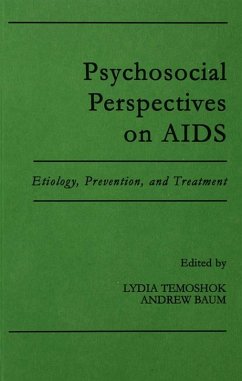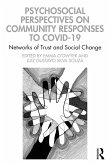AIDS and the virus that causes it have challenged the world's scientists, health care systems, and public health policies as much or more than any medical problem in recorded history. Perhaps this is so because this particular infirmity constitutes more than a merely medical problem: it is enmeshed in psychological, social, cultural, political, and economic contexts. This book examines the need for pragmatic and research-based suggestions on how to address some important problems related to these contexts. Although much basic research in virology and immunology can be accomplished within the biomedical domain, biobehavioral disciplines such as behavioral medicine offer more opportunities for the comprehensive approach necessary to confront the AIDS/HIV problem. The editors of this groundbreaking volume suggest that the very nature of this constantly evolving problem encourages an approach to research and intervention/prevention efforts that emphasizes flexibility of response to changing knowledge, patterns of the pandemic, new treatments, and shifts in public opinion and behavior. A major triumph in dealing with this phenomenon would include a bridging of the gap between research and applied efforts, which has been the largest obstacle for progress to date. In this book, such previously uncharted territory is explored, opening a host of new possibilities for dealing with the very real threat of AIDS.
Dieser Download kann aus rechtlichen Gründen nur mit Rechnungsadresse in A, B, BG, CY, CZ, D, DK, EW, E, FIN, F, GR, HR, H, IRL, I, LT, L, LR, M, NL, PL, P, R, S, SLO, SK ausgeliefert werden.









